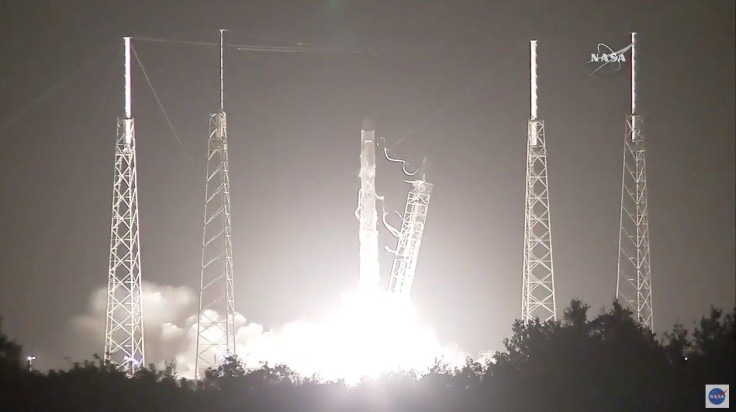SpaceX Successfully Launches ISS-Bound Dragon Cargo Capsule, Clinches Falcon 9 Landing Again

SpaceX successfully landed its Falcon 9 rocket at Cape Canaveral, Florida, early Monday after launching its Dragon capsule filled with supplies for astronauts aboard the International Space Station (ISS). This is the second time SpaceX — a company that has repeatedly clinched landing its rockets on drone barges — has pulled off this type of ground landing.
SpaceX’s Dragon cargo ship launched at 12:45 a.m. EDT from Space Launch Complex 40 at Cape Canaveral Air Force Station in Florida, carrying almost 5,000 pounds of cargo. Among other things, the capsule is ferrying instruments to perform the first-ever DNA sequencing in space, and also carrying a critical space station docking adapter for commercial spacecraft.
Falcon on LZ-1 at Cape Canaveral pic.twitter.com/dBkjBCDIRs
— Elon Musk (@elonmusk) July 18, 2016
This is SpaceX’s second attempt at delivering the docking port. Back in June 2015, its Falcon 9 rocket carrying the adapter exploded two minutes after liftoff.
“Each commercial resupply flight to the space station is a significant event. Everything, from the science to the spare hardware and crew supplies, is vital for sustaining our mission,” Kirk Shireman, NASA’s ISS program manager, said in a statement. “With equipment to enable novel experiments never attempted before in space, and an international docking adapter vital to the future of U.S. commercial crew spacecraft, we’re thrilled this Dragon has successfully taken flight.”
The latest Falcon 9 landing brings the total number of rockets SpaceX has recovered to five. Success in recovering rockets is crucial to the company’s space program, which seeks to drastically cut cost of travel by reusing the rockets. Currently, the first stage of a rocket is discarded after each use, making spaceflight — even a suborbital one — dauntingly expensive.
The Dragon capsule will reach the ISS at 7 a.m. EDT Wednesday. It will depart the space station on Aug. 29, carrying over 3,300 pounds of science, hardware, crew supplies and spacewalk tools back to Earth.
SpaceX is also working on perfecting an astronaut-worthy version of the Dragon capsule, which, once operational, is likely to reduce the U.S.’s current reliance on Russia to ferry personnel to the ISS, and could even support manned missions to Mars.
© Copyright IBTimes 2024. All rights reserved.






















